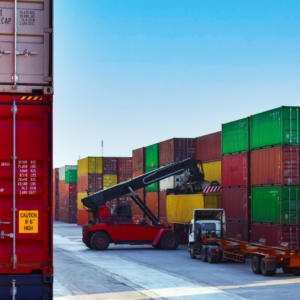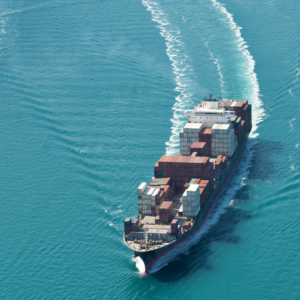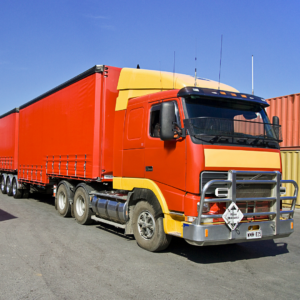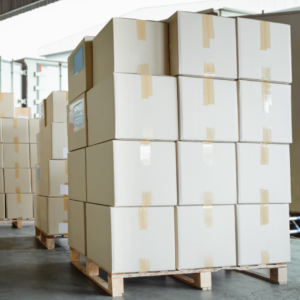
E-commerce Growth and Its Impact on Logistics
The e-commerce industry has grown exponentially in recent years, fueled by technological advancements, increasing internet penetration, and changing consumer preferences. This rapid expansion has intensified the pressure on logistics networks to handle high volumes of smaller, more frequent shipments. Traditional shipping methods, which often rely on full container loads, are less adaptable to the fragmented and dynamic demands of e-commerce.
LCL ocean shipping provides a tailored solution for businesses managing fluctuating order volumes. With its ability to accommodate partial loads, LCL offers a cost-effective alternative to full container shipping, making it indispensable for retailers aiming to maintain lean operations while meeting customer expectations.
The Role of LCL Shipping in E-commerce
LCL shipping, which allows multiple shippers to share space in a single container, is especially beneficial for e-commerce businesses dealing with diverse product lines and frequent restocking. This approach offers several advantages that align with the needs of modern online retailers.
Cost-Effective Shipping
E-commerce businesses often face the challenge of shipping smaller quantities without incurring high costs. LCL cargo rates provide a budget-friendly option, as businesses only pay for the space they use in a container. This enables online retailers to manage shipping expenses efficiently, even during lower order volumes.
Faster Time-to-Market
In the highly competitive e-commerce landscape, speed is critical. LCL shipping allows businesses to replenish inventory more frequently, reducing stockouts and ensuring product availability. Companies can maintain a responsive and efficient supply chain with reliable ocean freight services.
Sustainability Benefits
Consolidating shipments through LCL shipping reduces the environmental impact of transporting goods. By maximizing container usage, businesses contribute lower carbon emissions than shipping multiple smaller loads.
LCL Rates and Digital Freight Forwarding
The rise of e-commerce has also driven innovation in freight technology, making it easier for businesses to access and manage LCL shipping solutions. Digital freight
forwarding platforms provide instant access to online shipping quotes, streamlining the process of comparing LCL ocean rates and booking shipments.
These platforms offer several advantages:
- Transparent Pricing: Businesses can obtain real-time ocean freight shipping quotes, ensuring they clearly understand costs.
- Enhanced Visibility: Real-time tracking and automated updates give businesses better control over their shipments.
- Simplified Documentation: Digital tools reduce the administrative burden of international shipping, enabling seamless coordination.
Case Study: LCL Shipping in Action
Scaling Operations for Small-to-Medium Enterprises (SMEs)
A mid-sized e-commerce company specializing in home decor faced challenges balancing cost and efficiency. By adopting LCL shipping, they could ship smaller quantities more frequently, reducing storage costs while maintaining sufficient inventory to meet demand. Leveraging digital freight forwarding, they accessed instant ocean freight shipping quotes, allowing them to make informed decisions and streamline their logistics services.
Supporting Cross-Border Growth
An online fashion retailer expanded its operations to international markets but struggled with the complexities of shipping smaller orders. Utilizing LCL ocean freight, the retailer optimized its shipping strategy, reducing transit times and ensuring timely deliveries to customers worldwide.
Challenges in E-commerce Logistics and How LCL Shipping Addresses Them

E-commerce businesses often experience seasonal fluctuations, promotional surges, and unpredictable consumer behavior. LCL shipping offers the flexibility to adjust shipping volumes as needed, enabling businesses to respond effectively to demand spikes.
Inventory Management
Maintaining the right balance of inventory is a persistent challenge for online retailers. LCL shipping supports just-in-time inventory strategies by enabling frequent restocking, helping businesses avoid overstocking or stockouts.
Cost Constraints
Rising shipping costs can erode profit margins, particularly for small businesses. Competitive LCL rates provide an economical alternative, helping e-commerce companies scale without overburdening their budgets.
Freight Services Shipping: The Future of LCL Solutions
As the e-commerce boom continues, logistics providers are investing in advanced technologies to enhance the efficiency and reliability of ocean freight services. Key trends shaping the future of LCL shipping include:
- Data-Driven Optimization: Predictive analytics and AI-driven insights are helping businesses optimize shipping routes and container utilization.
- Sustainable Practices: Growing emphasis on eco-friendly shipping solutions is driving innovations in LCL logistics.
- Integrated Systems: Seamless integration between e-commerce platforms and logistics networks ensures smoother operations and improved customer satisfaction.
Key Considerations for Adopting LCL Shipping
Businesses planning to incorporate LCL shipping into their logistics strategies should consider:
Vendor Selection: Partner with reliable providers offering competitive LCL ocean rates and comprehensive support.
Packaging and Compliance: Ensure goods are adequately packed and meet international shipping standards.
Digital Integration: Utilize platforms offering online shipping quotes and real-time tracking to simplify logistics management.
The e-commerce boom has redefined the logistics industry, urgently demanding flexible, scalable, and cost-efficient solutions. LCL shipping, with its ability to accommodate smaller loads, has become a pivotal strategy for businesses navigating global trade challenges. By embracing LCL ocean freight, leveraging freight technology, and utilizing digital freight forwarding tools, e-commerce companies can build resilient and efficient supply chains.
As logistics services evolve, LCL shipping will remain at the forefront, empowering businesses to thrive in a dynamic and competitive market. Whether managing local shipments or expanding internationally, combining competitive LCL rates and cutting-edge technology ensures a sustainable and growth-oriented approach to modern e-commerce logistics.






Leave A Comment
You must be logged in to post a comment.